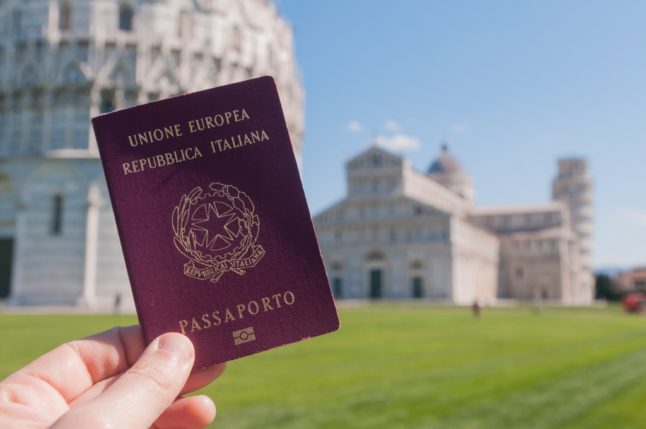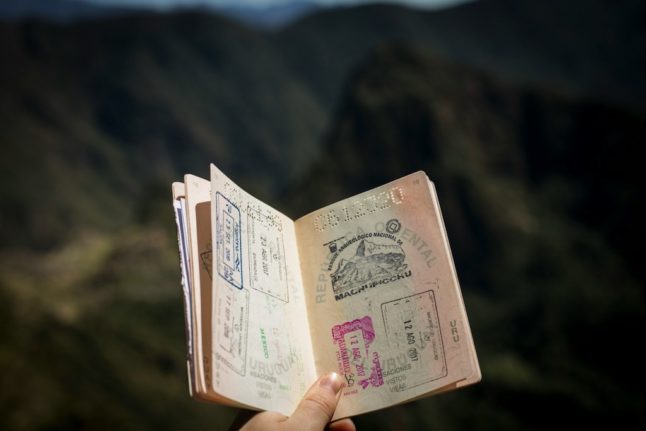Italy granted citizenship to some 213,716 people in 2022, according to a new study from Italian migration research body ISMU based on data from European statistics bureau Eurostat.
This made Italy the EU country with the highest number of granted citizenship requests, followed by Spain (with 181,581 new citizens), Germany (166,640) and France (114,483).
The number of Italian citizenship claims approved in 2022 was up by around 76 percent compared to 2021 (121,457).
Italy accounted for nearly a quarter (22 percent) of the total number of citizenship requests granted across the bloc: 989,940.
Of those who acquired Italian citizenship in 2022, around 40 percent came from one of the following three countries: Albania (38,129 successful applications), Morocco (30,953) and Romania (16,302).
The top five was completed by Brazil (11,239) and India (8,509), with no English-speaking nation appearing in the top 20.
READ ALSO: Five surprising Italian citizenship rules you should know about
As for the age of those who gained Italian citizenship in 2022, 37 percent of new citizens were under the age of 20.
According to the study, Italy granted citizenship to a total of nearly 1.5 million people between 2013 and 2022, with 2022 being the year with the highest number of successful applications, followed by 2016 (201,591) and 2015 (178,035).
ISMU’s study provided no details as to which paths to acquire citizenship were the most popular ones in 2022.
According to the latest data from Italian statistics office Istat, the most common ways to claim Italian citizenship are: ius sanguinis, which allows those who can prove descent from at least one Italian ancestor to claim Italian citizenship; birthplace (or ius soli), which entitles people born and raised in Italy by non-Italian parents to claim Italian citizenship at age 18; and parental transmission, which transfers citizenship to the children of adults who acquire citizenship provided they’re under 18 and living with them at the time.
READ ALSO: The three ways to apply for Italian citizenship
The birthplace or ius soli path has recently been at the centre of nationwide debate after Italian rapper Ghali shone light on the issues faced by second-generation immigrants at the Sanremo music festival.
Italy currently has one of the toughest citizenship regimes in Europe when it comes to children born in the country to foreign parents as they are unable to apply for an Italian passport until they are 18.
READ ALSO: Will my children get an Italian passport if born in Italy?
After turning 18, they have one year to submit their application for citizenship. If the window is missed, claiming citizenship becomes a complex bureaucratic process, which can take at least three years.



 Please whitelist us to continue reading.
Please whitelist us to continue reading.
Member comments